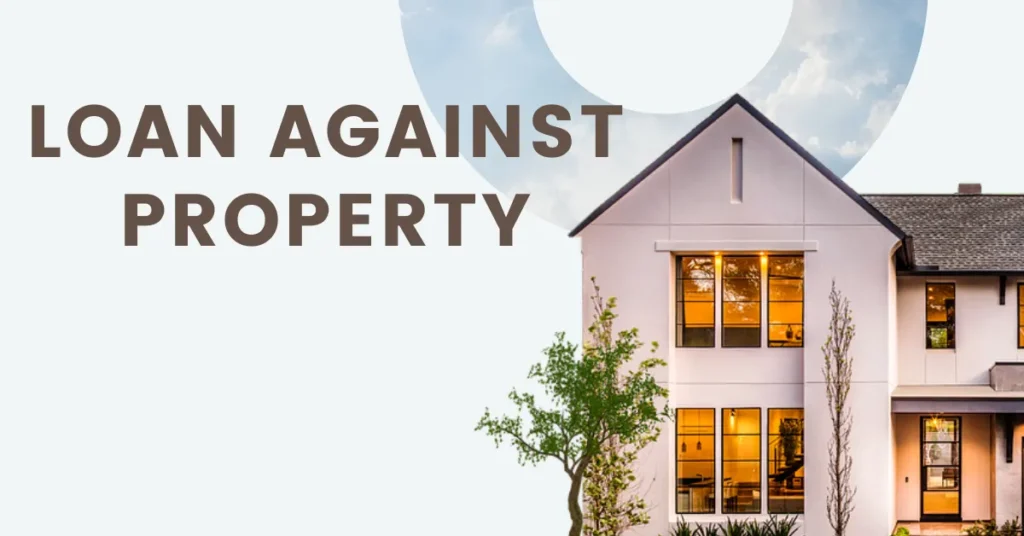A Loan Against Property (LAP) is a secured loan that allows you to borrow money against the value of your property.
This type of loan is beneficial for individuals and businesses seeking substantial funds for various purposes, such as business expansion, medical expenses, education, or personal needs.
This guide will cover everything you need to know about Loans Against Property, including their features, benefits, eligibility criteria, the application process, and frequently asked questions.

What is a Loan Against Property?
A Loan Against Property (LAP) is a multi-purpose loan that you can obtain by pledging your residential, commercial, or industrial property as collateral.
The loan amount sanctioned is typically a percentage of the property’s market value, ranging from 50% to 70%.
Recommended Reading
- Finance & Insurance HUB
- The Best Health Insurance in the USA: A Complete Guide
- Comprehensive Insurance for 4-Wheelers: A Complete Guide
- How to Purchase Insurance: A Comprehensive Guide
- How to Purchase Health Insurance and Where to Buy It
- Understanding the Health Insurance Marketplace: A Comprehensive Guide
- Health Insurance Plans for Families: A Comprehensive Guide
- The Best Health Insurance Companies in the USA
- Maximum Loan Amount for a New Four-Wheeler
- Securing a Business Loan in the USA Without Collateral
- Which Bank Has the Lowest Mortgage Rate?
Key Features of a Loan Against Property
Secured Loan:
Since LAP is secured against property, it generally has lower interest rates compared to unsecured loans like personal loans.
High Loan Amount:
You can avail of a significant loan amount depending on the property’s value, making it suitable for large expenses.
Flexible End-Use:
The funds can be used for various purposes, including business, education, medical expenses, and personal needs.
Long Tenure:
LAPs usually come with longer repayment tenures, which can extend up to 15-20 years, reducing the monthly EMI burden.
Lower Interest Rates:
Interest rates for LAPs are generally lower than those for personal loans due to the secured nature of the loan.
Benefits of a Loan Against Property
Lower Interest Rates:
As a secured loan, LAPs typically offer lower interest rates compared to unsecured loans, making them more affordable in the long run.
Large Loan Amount:
You can leverage the value of your property to secure a substantial loan amount, which can be higher than what you might get with unsecured loans.
Flexible Repayment Options:
Longer loan tenures allow for flexible repayment options, making it easier to manage monthly EMIs.
Multi-Purpose Use:
Unlike some specific-purpose loans, an LAP can be used for various needs, from business expansion to personal expenses.
Continued Property Ownership:
You retain ownership and usage rights of your property even while it is mortgaged.
Eligibility Criteria for a Loan Against Property
Age:
Applicants should typically be between 21 and 65 years of age.
Income:
Steady income from employment or business is essential to demonstrate repayment capability.
Property Ownership:
The applicant should own the property that will be mortgaged.
Credit Score:
A good credit score improves the chances of loan approval and favourable terms.
Property Valuation:
The property should have clear legal titles and should be free from any encumbrances.
Application Process for a Loan Against Property
Application Submission:
Fill out the loan application form and submit it along with required documents.
Documentation:
Provide proof of identity, address, income, and property ownership documents.
Property Valuation:
The lender will conduct a valuation of the property to determine its market value.
Loan Approval:
Based on the property valuation and your eligibility, the lender will sanction the loan amount.
Disbursement:
Once the loan is approved, the funds are disbursed to your account.
FAQs About Loan Against Property
Q1: Can I apply for a Loan Against Property if I already have a home loan?
Q2: What happens if I fail to repay the Loan Against Property?
Q3: Can I prepay my Loan Against Property?
Q4: Is it possible to get a Loan Against Property for a leased property?
Q5: How is the interest rate for a Loan Against Property determined?
Conclusion
A Loan Against Property is a versatile and cost-effective financing option for individuals and businesses seeking substantial funds.
By leveraging your property’s value, you can access a large loan amount with lower interest rates and flexible repayment terms.
Before applying, ensure you understand the eligibility criteria, application process, and potential risks involved.
By doing so, you can make an informed decision that aligns with your financial goals and needs.
Call to Action
Are you ready to unlock the value of your property and secure a loan that meets your financial needs?
Start by evaluating your property’s worth and exploring different lenders to find the best terms.
Consult with a financial advisor to ensure you make the best choice for your financial future.